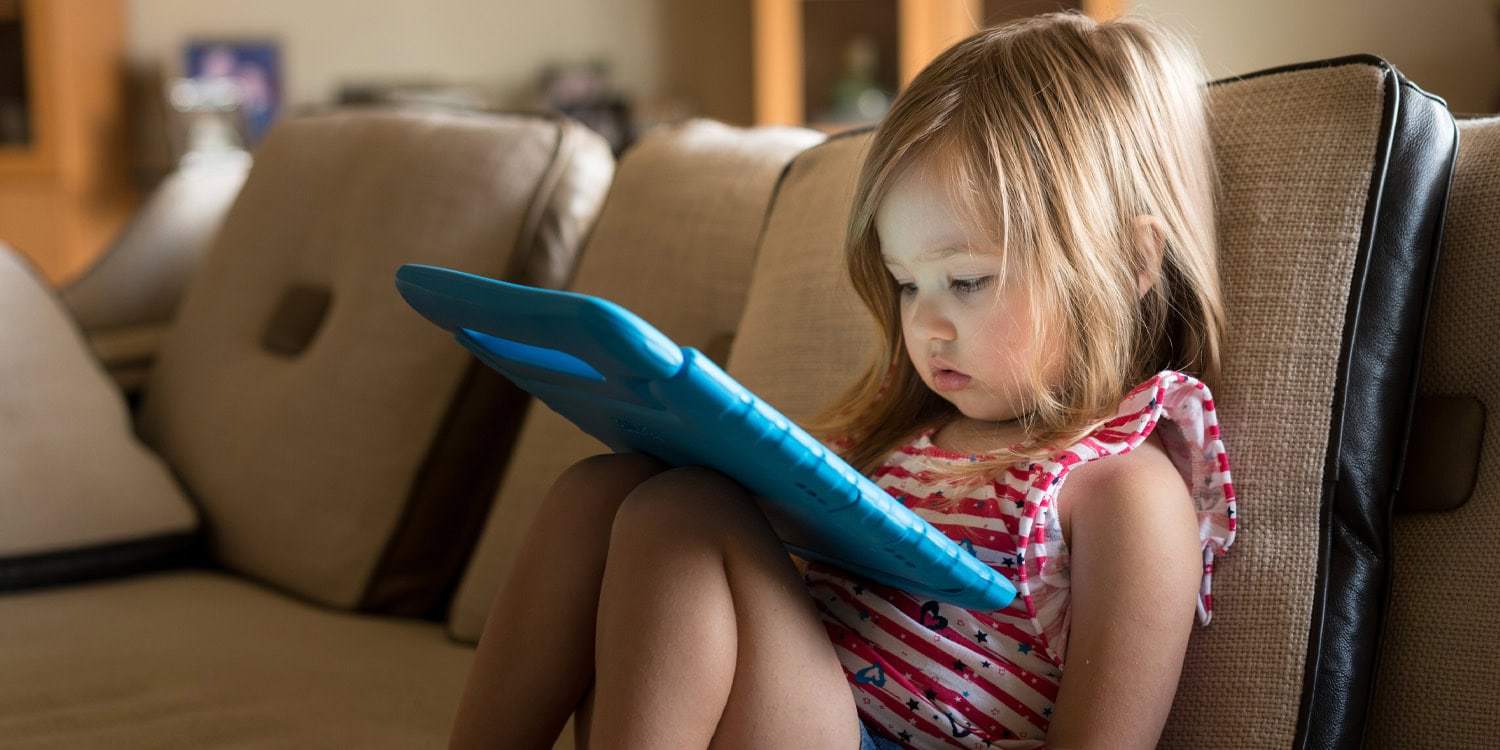A recent study published in JAMA Pediatrics has found a connection between the use of tablets by young children and their tendency to express anger and frustration. Researchers observed that children who spent more time using tablets at age 3.5 were slightly more likely to show signs of frustration by age 4.5. In turn, children who displayed more frustration at age 4.5 were modestly more likely to use tablets more frequently by age 5.5. These findings highlight the potential bidirectional relationship between tablet use and emotional regulation in preschool-aged children.
Tablet use has become a common part of early childhood, with surveys showing that most four-year-olds in the United States own their own mobile devices. The amount of time young children spend on screens has also been steadily rising. In 2020, the average daily screen time for a child was about five minutes; by 2022, it had jumped to nearly an hour. The features of tablets, including their bright, fast-changing visuals and access to customizable content, make them particularly appealing to children. Parents often find tablets helpful in keeping children occupied during routine activities, such as dining out or completing household chores.
However, early childhood is also a critical period for developing emotional regulation skills, particularly the ability to manage frustration and anger. During these years, children are learning how to handle emotions through social interactions, play, and guidance from caregivers. There are concerns that excessive tablet use might interfere with these learning opportunities, potentially hindering emotional development. At the same time, parents may be more likely to use screens as a tool to calm their children during emotional outbursts, potentially reinforcing a cycle of screen dependency.
Given the rise in tablet use and the importance of emotional regulation in early childhood, the researchers aimed to explore the possible connections between screen time and children’s ability to manage frustration. They wanted to know if tablet use led to more emotional difficulties or if children prone to emotional outbursts were more likely to end up using tablets as a coping mechanism.
“Tablet use by young children has increased rapidly over the last few years. Since early childhood is a sensitive time for the development of emotional regulation skills, we wanted to better understand associations between preschool-aged children’s tablet use and their management of anger and frustration,” said study author Caroline Fitzpatrick, a professor of child development at the Université de Sherbrooke and visiting research fellow at the University of Johannesburg.
The study followed a group of 315 children in Nova Scotia, Canada, over a two-year period, starting when the children were 3.5 years old. Data were collected annually when the children were 3.5, 4.5, and 5.5 years old. Parents provided information about how much time their child spent using tablets each week, with categories ranging from “never” to “more than five hours a day.” Researchers converted these responses into a continuous measure of tablet use, estimating daily screen time for each child.
The children’s emotional regulation skills, specifically their proneness to anger and frustration, were assessed using a standardized questionnaire completed by the parents. The questionnaire included items that gauged how often the child became frustrated or angry in response to everyday situations, such as being told to go to bed.
The researchers employed a statistical method that allowed them to examine changes in both tablet use and emotional behavior within individual children over time. This approach was designed to account for each child’s baseline characteristics, such as temperament and family background, to better understand the direct relationship between tablet use and emotional regulation.
The researchers found that higher levels of tablet use at age 3.5 were associated with more frequent expressions of anger and frustration by age 4.5. The researchers found that for every one-hour increase in daily tablet use at age 3.5, there was a 22 percent increase in the intensity of emotional outbursts by age 4.5. This means that children who used tablets more at 3.5 showed a slightly higher tendency to express anger and frustration one year later, but the effect was not dramatic.
But the relationship didn’t stop there. Children who displayed more frustration and anger at age 4.5 were, in turn, more likely to use tablets more frequently by age 5.5. This suggests a bidirectional relationship—meaning that tablet use and emotional outbursts may feed into each other. As children use tablets more, they may struggle to regulate their emotions, and as they struggle to manage emotions, parents may be more likely to offer screens as a coping tool.
“We recommend that parents and early childhood professionals closely monitor tablet use by young children, especially with younger preschoolers,” Fitzpatrick said. “We also advise avoiding using tablets as a tool to regulate young children’s emotions.”
Interestingly, while the relationship between tablet use and emotional regulation was clear at these specific ages, there was no evidence that the effects of tablet use or anger carried over in a stable way year to year. In other words, while tablet use and emotional outbursts were linked at certain points, these behaviors were not fixed over time.
“We expected that higher levels of anger and frustration at age 3 would contribute to more tablets use one year later by age 4. We did not observe this association,” Fitzpatrick told PsyPost. “However, we did observe that higher levels of anger and frustration at age 4 contributed to more tablet use by age 5.”
While the study provides important insights into the link between tablet use and emotional regulation, it also has several limitations. One key limitation is the relatively small effect sizes observed. For example, an increase in tablet use at age 3.5 was linked to only a slight increase in anger and frustration by age 4.5, and similarly, higher frustration levels at 4.5 were associated with a modest increase in tablet use by age 5.5.
Although these changes were statistically significant, they were not large. However, even small changes can be meaningful in child development, as they may accumulate over time or interact with other factors to have a broader impact.
Additionally, the study relied on a convenience sample, meaning participants were recruited from specific locations and may not represent the broader population. Moreover, it took place during the COVID-19 pandemic, which could have influenced both tablet use and emotional behavior in ways that might not be typical in other times.
Lastly, both tablet use and emotional behaviors were reported by parents, which could introduce bias, and the quality of content or the context in which children used tablets was not accounted for. Future research should consider these factors to better understand the full impact of screen time on emotional regulation.
“We are currently conducting a replication of the study we conducted during the pandemic in a post-pandemic context,” Fitzpatrick said.
The study, “Early-Childhood Tablet Use and Outbursts of Anger,” was authored by Caroline Fitzpatrick, Pedro Mario Pan, Annie Lemieux, Elizabeth Harvey, Fabricio de Andrade Rocha, and Gabrielle Garon-Carrier.




